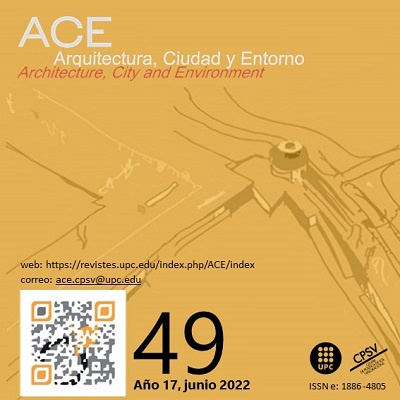Design Failure in Indoor Shopping Structures: Unconscious Ageism and Inclusive Interior Design in Istanbul
DOI:
https://doi.org/10.5821/ace.17.49.9974Keywords:
Ageism, older people, supermarkets, inclusive designAbstract
Aging, although not a disability, appears to be stigmatized. People consciously or unconsciously push older adults to the edge of society by not allowing them an active voice and making them feel less important than younger citizens. Older people may experience social and economic stress as well as anxiety, hopelessness, isolation, and depression. Almost all industries are disproportionately focused on developing technological innovations for younger people, not for older adults. Although there is a considerable amount of research on aging populations, research on the indoor design problems that older people encounter every day is scarce. Shopping is a good opportunity for them to get involved in the community, and is an appropriate research area, the aim of which is to prevent architectural barriers to older adults. This study examines indoor shopping design failures that reflect ageism according to older adults’ experiences and requirements. A questionnaire was administered to 198 participants about their experiences in supermarkets in the district of Kadıköy, in Istanbul; Kadıköy is the district with the largest proportion of older adults (17,7%). The results showed that as the need for rest areas and toilets increases, the time spent by older adults in supermarkets declines. Additionally, checkout counters and product display shelves show design problems that constitute indoor accessibility issues. This study concludes by looking at issues in the design of indoor shopping area that contribute to ageist attitudes. We call for inclusive shopping environments to address spatial justice and to eliminate ageism.
Published
Issue
Section
License
| INTELECTUAL PROTECTION CRITERIA |
At this moment, it is count with the "Oficina Española de Patentes y Marcas", while global protection it is being processed by the World Intelectual Property Organization (OMPI/WIPO). Nevertheless the International Standard Serial Number Office (ISSN) has given the following numbers ISSN: 1886-4805 (electronic version) and 1887-7052 (paper version). All articles will be peer reviewed, using double blind reviewing. |
| COPYRIGHT |
The article contents and their comments are authors exclusive liability, and do not reflect necessarily the journal editor commitee's opinion. All ACE published works are subject to the following licence CC BY-NC-ND 3.0 ES http://creativecommons.org/licenses/by-nc-nd/3.0/es/ It implies that authors do not hold nor retain the copyright without restrictions but only those included in the licence. |


































